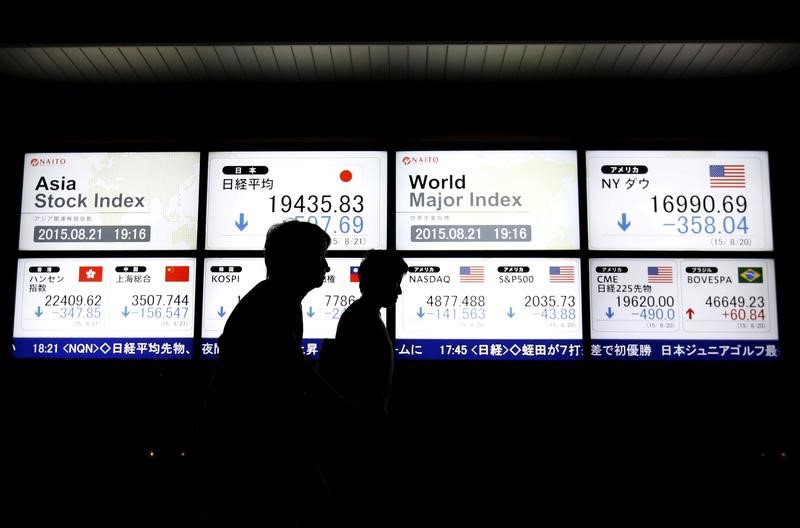By Shinichi Saoshiro
TOKYO (Reuters) - The dollar on Friday stood near a 14-year peak, bond yields were highly elevated and Asian stocks struggled for traction as global markets continued adjusting to the idea of higher U.S. interest rates.
In a move that reverberated across the financial markets, the Fed on Wednesday raised rates for the first time in a year and hinted at three hikes to follow in 2017, up from the two projected in September.
The dollar index (DXY) topped the 103.00 threshold for the first time since December 2002 overnight and last stood at 103.11.
The euro was steady at $1.0410
The greenback was lifted as the notion of the Fed tightening monetary policy next year more quickly than first thought took the benchmark U.S. Treasury 10-year yield (US10YT=RR) to highs not seen in two years.
"World markets continue to adjust to an outlook for higher U.S. interest rates and increased inflation risk boosted by major U.S. tax cuts," wrote Ric Spooner, chief market analyst at CMC Markets.
Tracking the rise in the U.S. 10-year note's yield, Japan's 10-year government bond yield rose to an 11-month peak of 0.10 percent
Asian stocks were mixed, reflecting the differing fortunes for developed and emerging market economies faced with higher U.S. interest rates.
"Emerging market countries have been hit the hardest by capital leaving in search of higher yields and return along with the growing cost of paying back dollar denominated debt," wrote Kathy Lien, managing director of FX strategy at BK Asset Management.
Japan's Nikkei (N225) climbed to a one-year high on a weaker yen and gains on Wall Street overnight. U.S. shares rose on Thursday, brushing off the initial shock of a more hawkish Fed, led by shares of banks seen as the benefactors of higher rates.
European stocks (FTEU3) also rose, gaining 1 percent on Thursday as bank stocks increased.
MSCI's broadest index of Asia-Pacific shares outside Japan (MIAPJ0000PUS) dipped a fraction after falling 1.8 percent on Thursday. The broader emerging market stock index (MSCIEF) was down 1.6 percent.
Australian stocks (AXJO) shed 0.1 percent, while South Korea's Kospi (KS11) also lost 0.1 percent.
In commodities, crude oil prices nudged higher. Negative pressures from a bullish dollar were offset after OPEC members told customers they would cut crude supplies. [O/R]

U.S. crude was up 0.4 percent at $51.11 a barrel (CLc1).